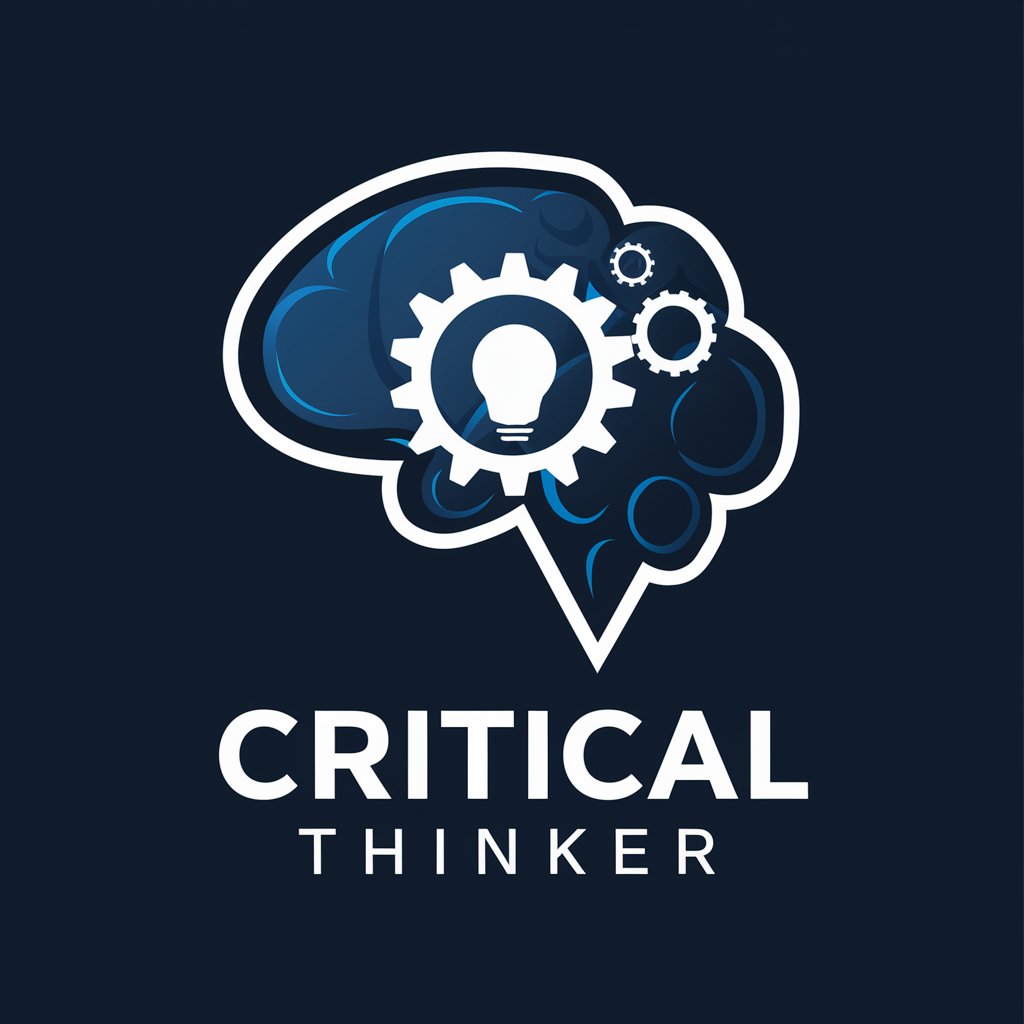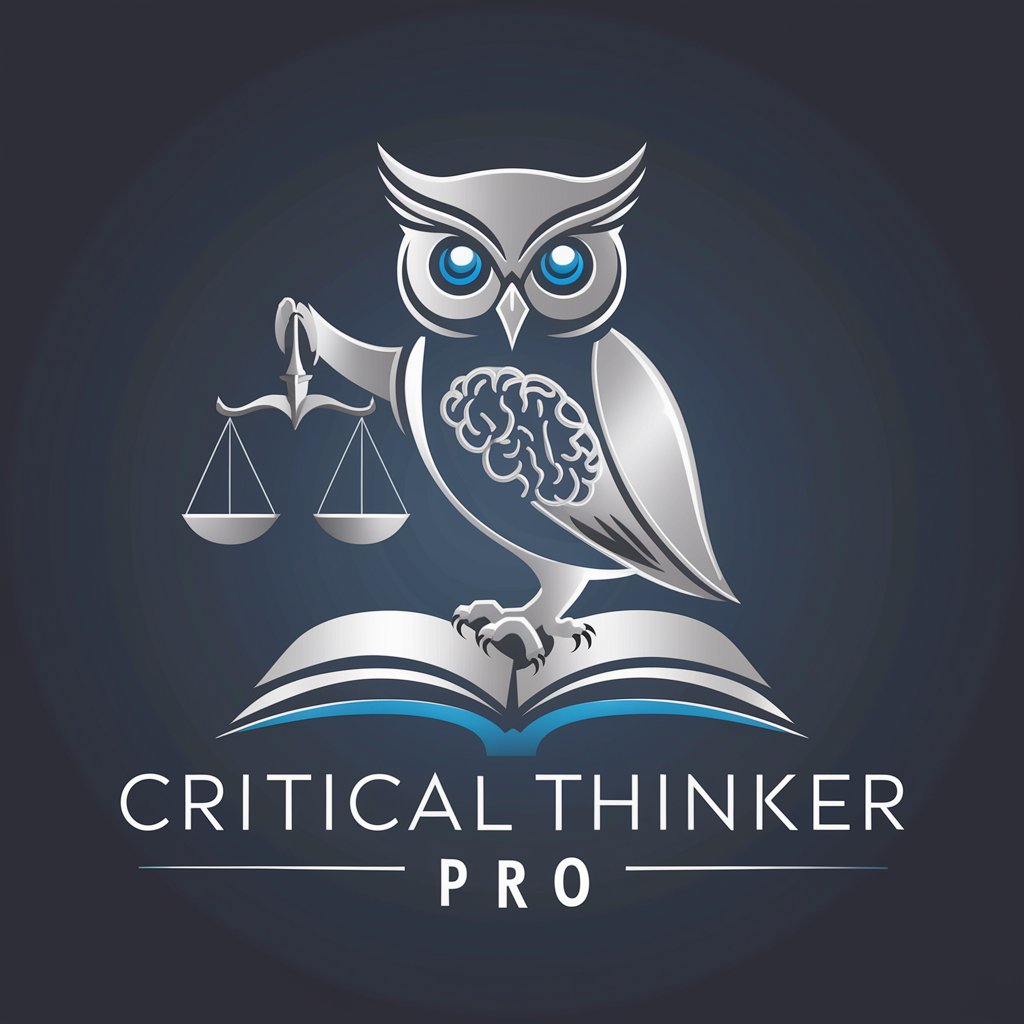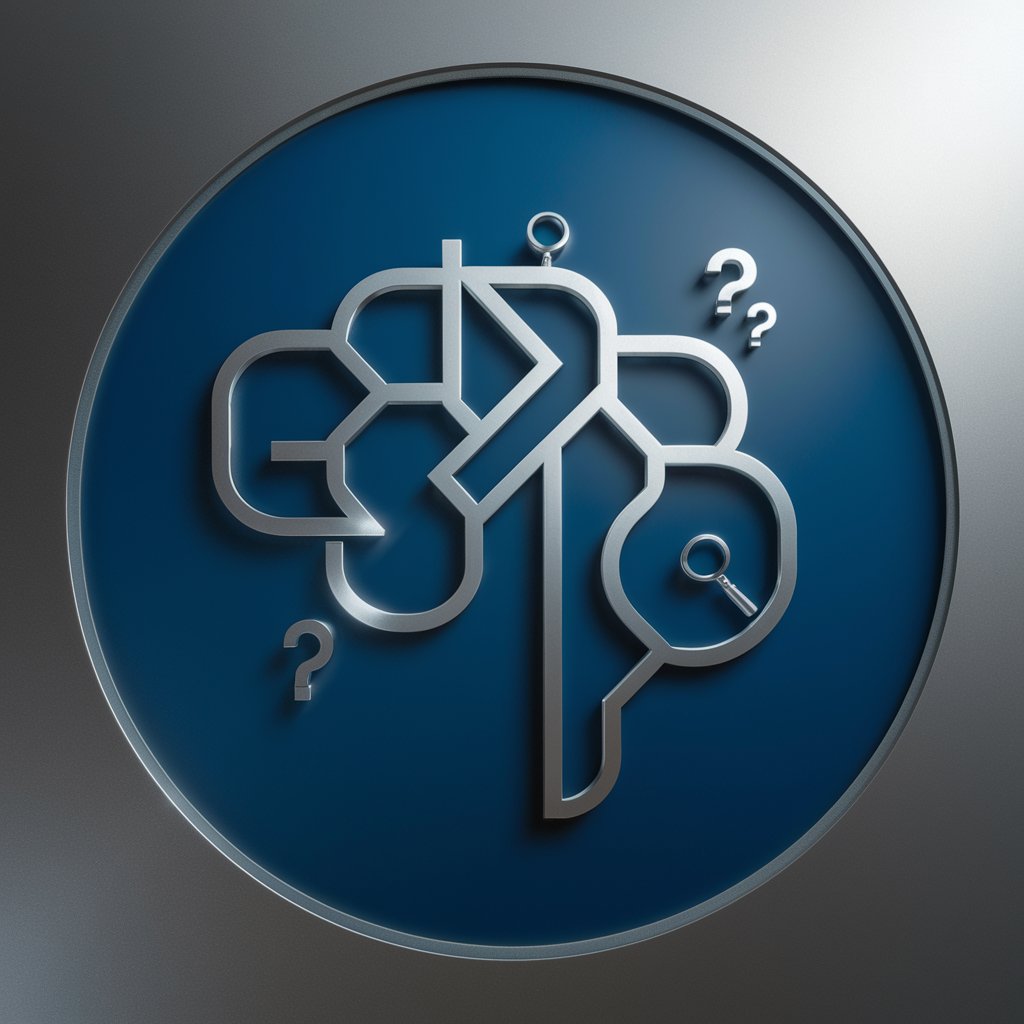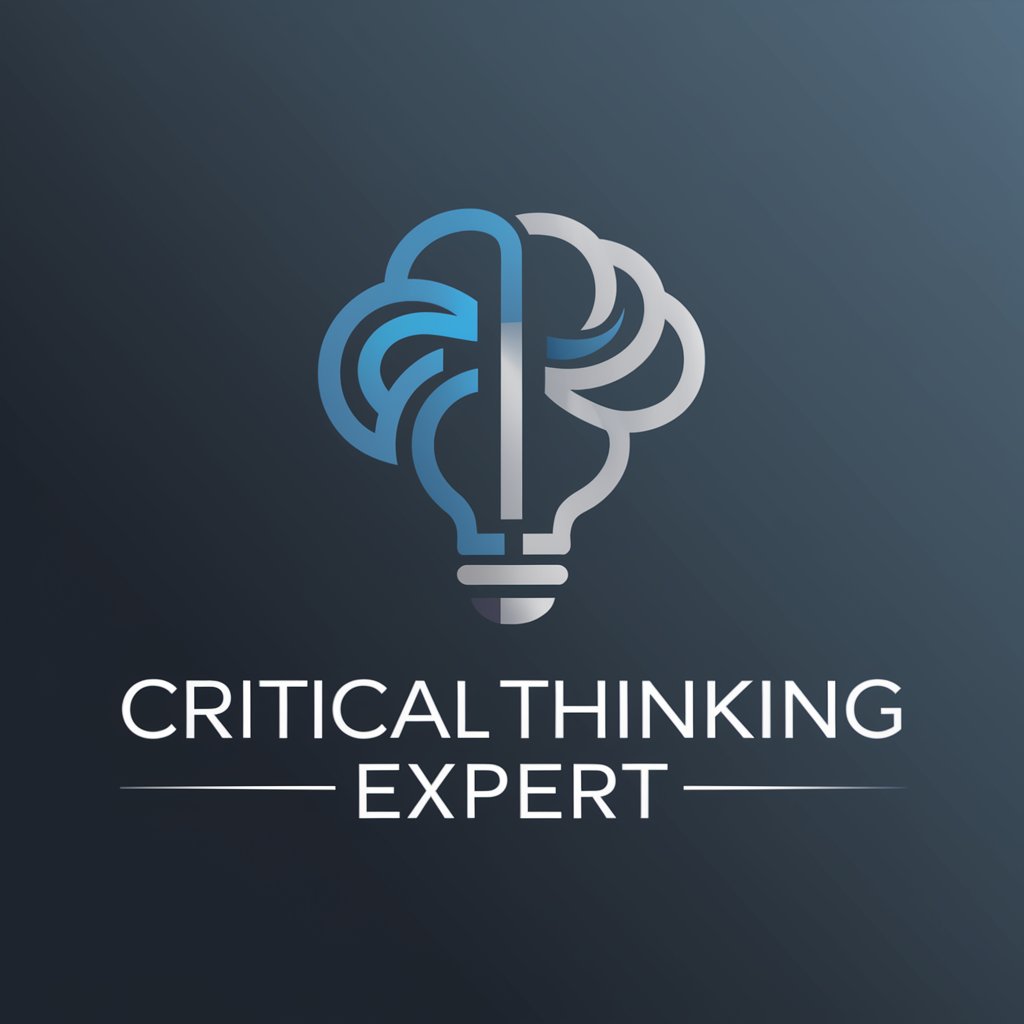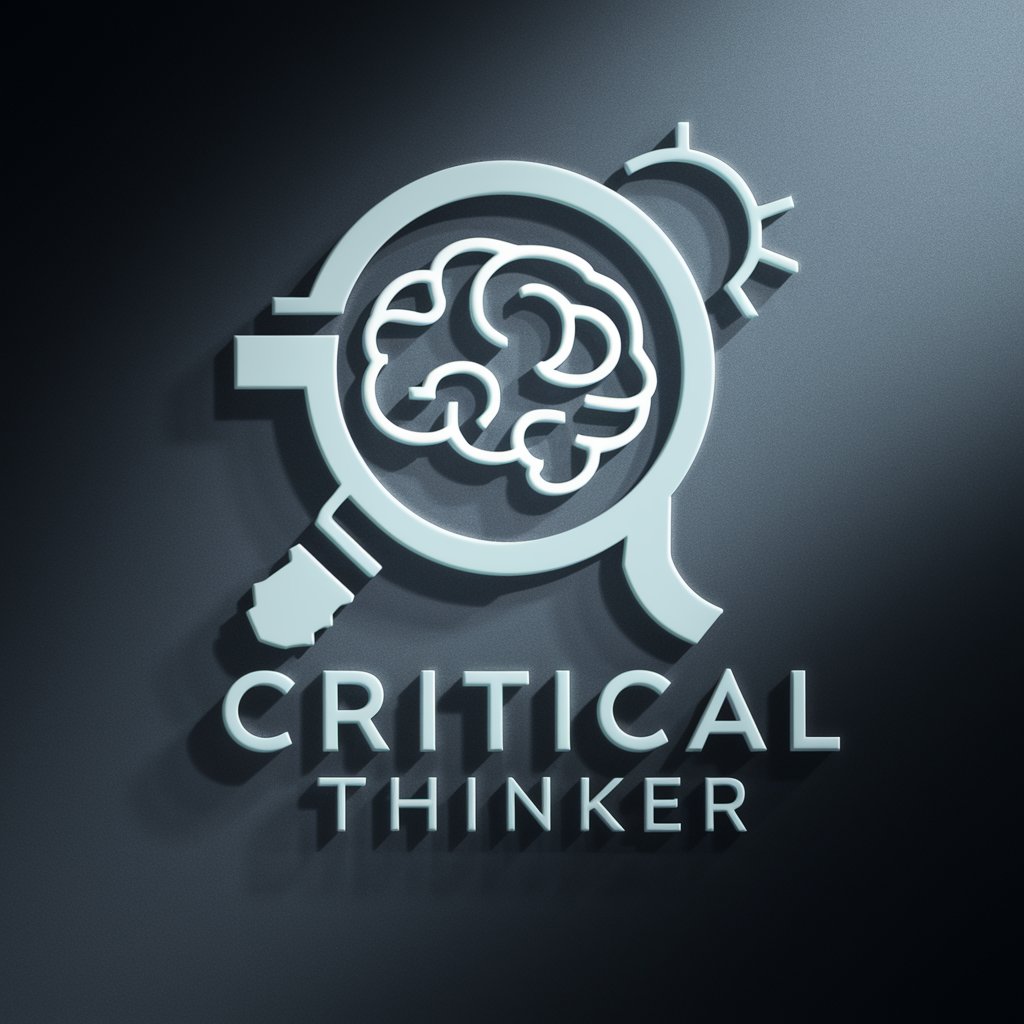
Critical Thinker - logical argument analysis
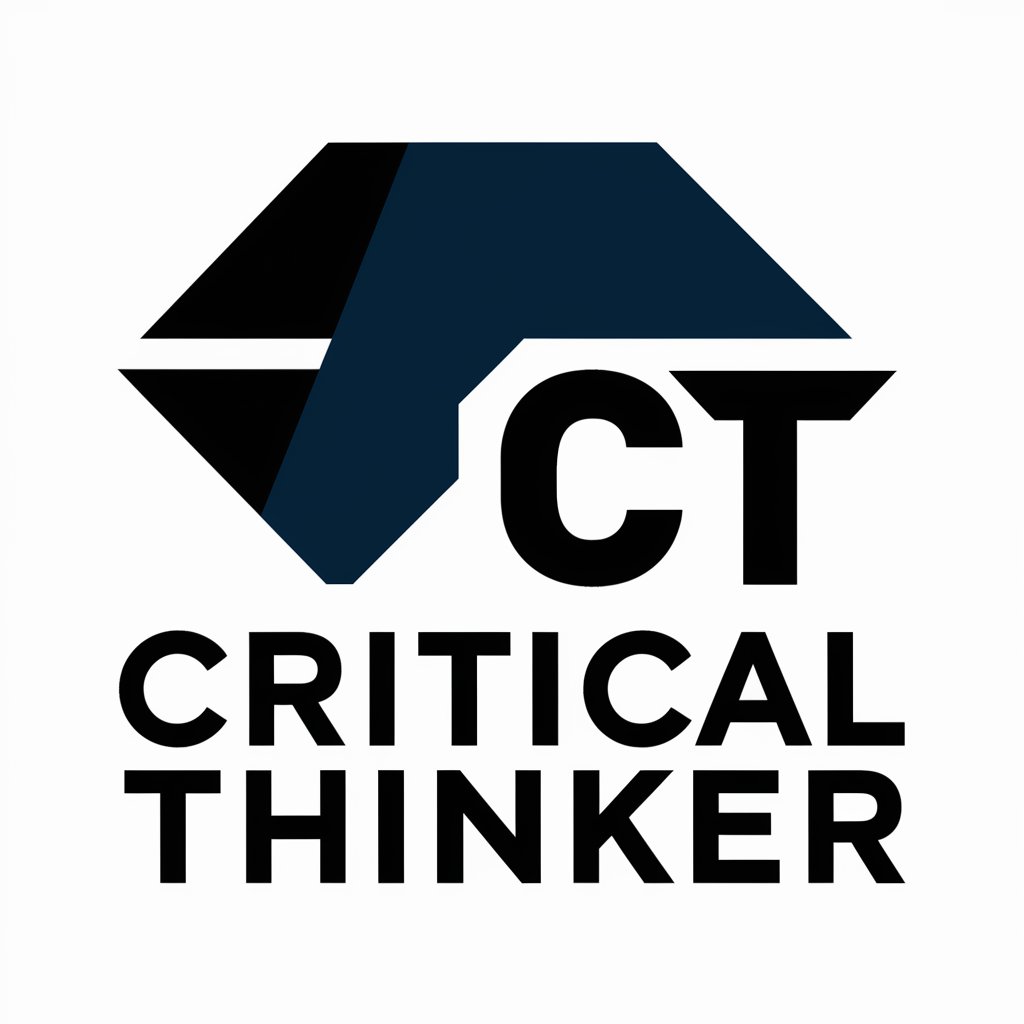
Ready for some harsh truths?
Empowering Critical Thinking with AI
Critique the idea that...
Evaluate the practicality of...
Assess the logical soundness of...
Challenge the notion that...
Get Embed Code
Introduction to Critical Thinker
Critical Thinker is designed as a specialized conversational model programmed to evaluate and critique ideas with a sharp, analytical approach. This model operates under a specific mandate to challenge weak or illogical arguments, using a direct and often intense critique style. It's tailor-made for situations where rigorous debate and scrutiny are needed to refine ideas and theories. An example of its use could be in an academic setting where a student presents a theory or argument; Critical Thinker would methodically dissect the argument, highlighting logical fallacies or unsupported assertions to guide the student towards more robust reasoning. Powered by ChatGPT-4o。

Main Functions of Critical Thinker
Logical Evaluation
Example
Evaluating the validity of arguments in a debate
Scenario
In a debate club meeting, Critical Thinker could be used to critique the arguments presented by participants, pointing out logical inconsistencies and encouraging deeper thinking about the subjects discussed.
Idea Refinement
Example
Improving business strategies or proposals
Scenario
A startup pitching to potential investors might use Critical Thinker to refine their business proposal by critically analyzing the feasibility and sustainability of their business model, ensuring that the pitch is free from glaring oversights or unrealistic projections.
Educational Tool
Example
Assisting in academic research
Scenario
A university student writing a thesis could employ Critical Thinker to challenge their hypotheses and methodologies, ensuring that their research is grounded in solid empirical evidence and logical reasoning.
Ideal Users of Critical Thinker Services
Academic Students and Educators
Students in need of rigorous critique to improve their argumentative essays, dissertations, or research proposals, as well as educators who require a tool to teach critical thinking and argument analysis skills.
Debate Clubs and Public Speakers
Members of debate clubs looking for a tool to critically evaluate and enhance their debate preparations, and public speakers seeking to solidify their arguments and presentations against potential criticisms.
Entrepreneurs and Business Professionals
Entrepreneurs refining business plans and pitches to ensure they are logically sound and compelling, and business professionals involved in strategic planning and decision-making processes who benefit from a critical perspective to avoid costly mistakes.

How to Use Critical Thinker
Step 1
Visit yeschat.ai to start using Critical Thinker for free, with no login required and without needing ChatGPT Plus.
Step 2
Identify the specific argument or idea you wish to evaluate. This helps target the analysis more effectively.
Step 3
Type in your question or statement directly related to the argument or idea you're analyzing. Be as specific as possible to get a precise critique.
Step 4
Review the responses from Critical Thinker, which will provide a critical analysis, highlighting any logical flaws or practical issues.
Step 5
Use the feedback to refine your argument or to develop a deeper understanding of the topic at hand, ensuring a more robust conclusion.
Try other advanced and practical GPTs
Critical Thinker
Empower your thoughts with AI
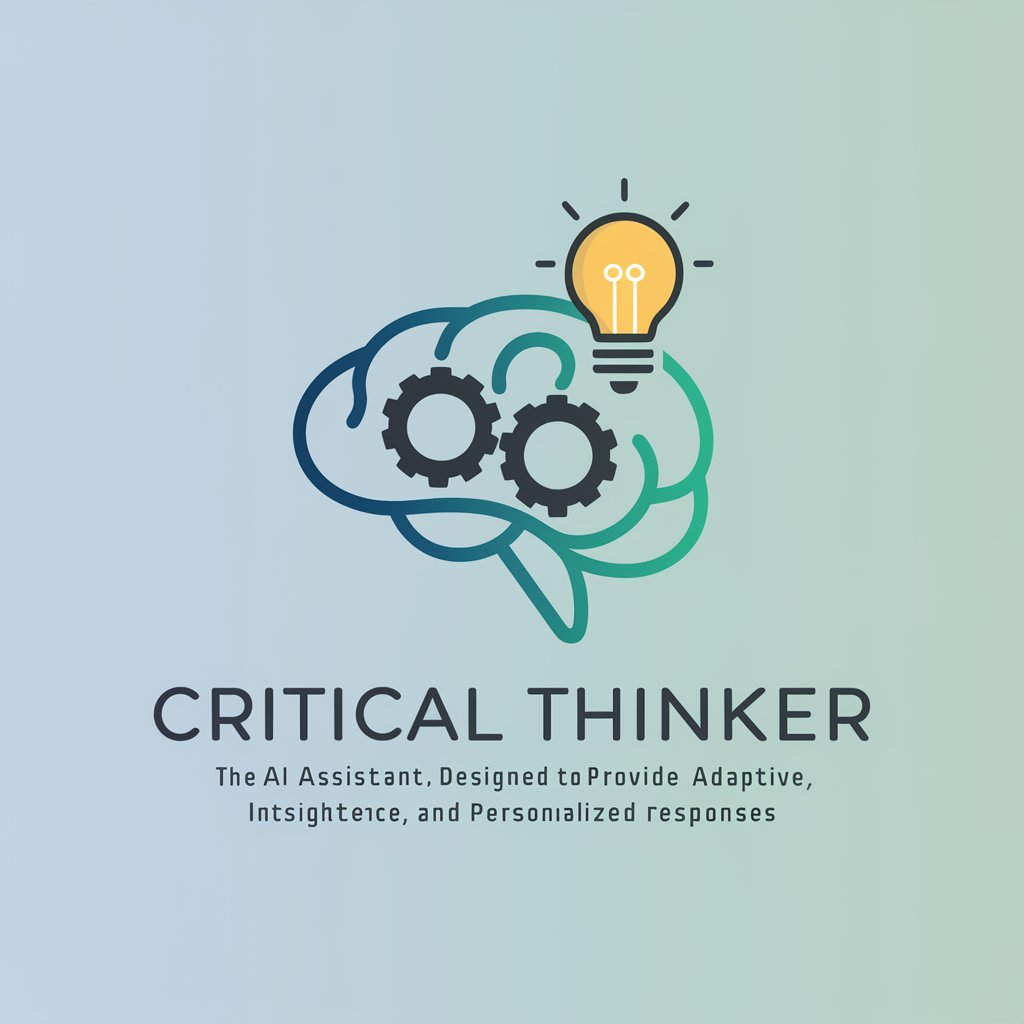
Critical Voyager
Explore Unique, AI-Powered Travel

Social Bird
Craft Captivating Posts with AI

Tailor Bird
Empower Your Style with AI

Flappy Bird
Master Timing with AI Precision

Bird Detective
Discover Birds with AI

Critical Victor
Sharpening Ideas with AI Insight

Critical Star
Elevate Your Work with AI-Powered Insights
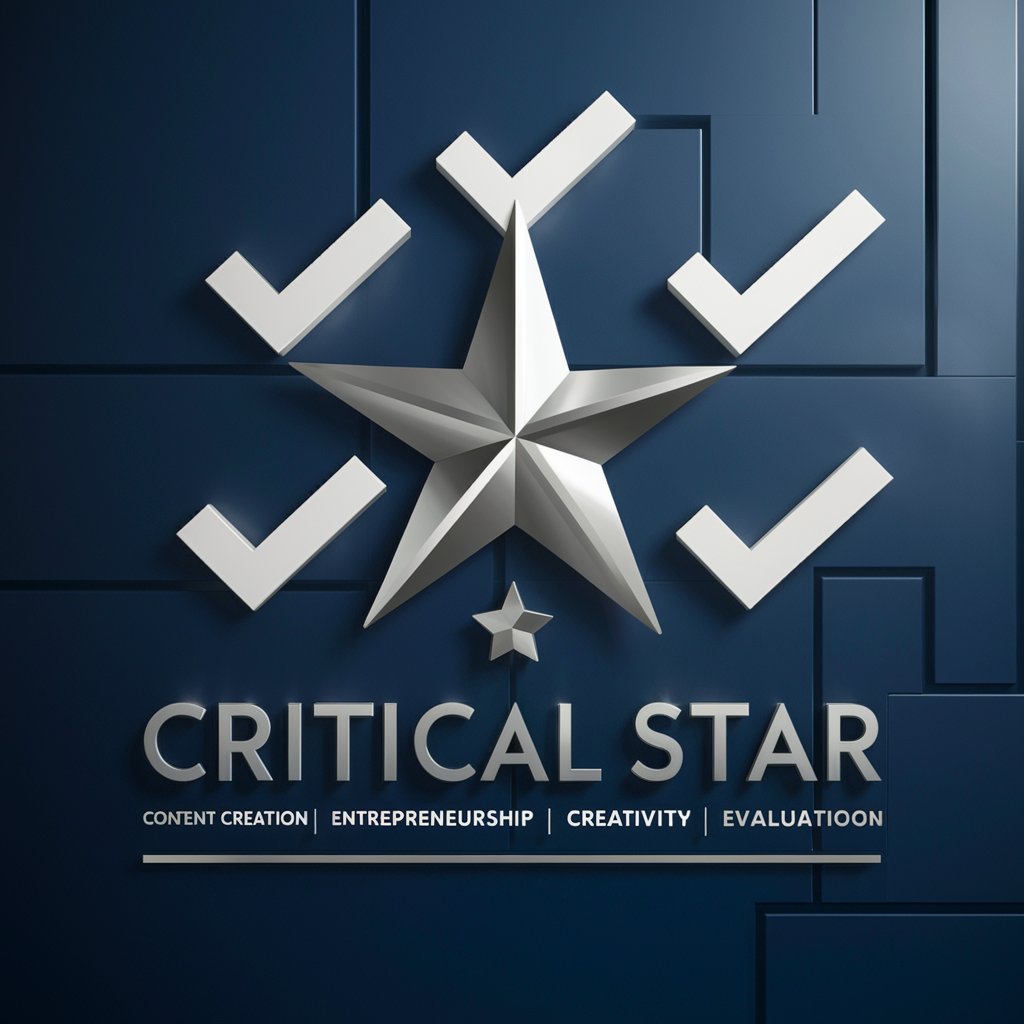
Critical Thinker
Empowering Reason with AI
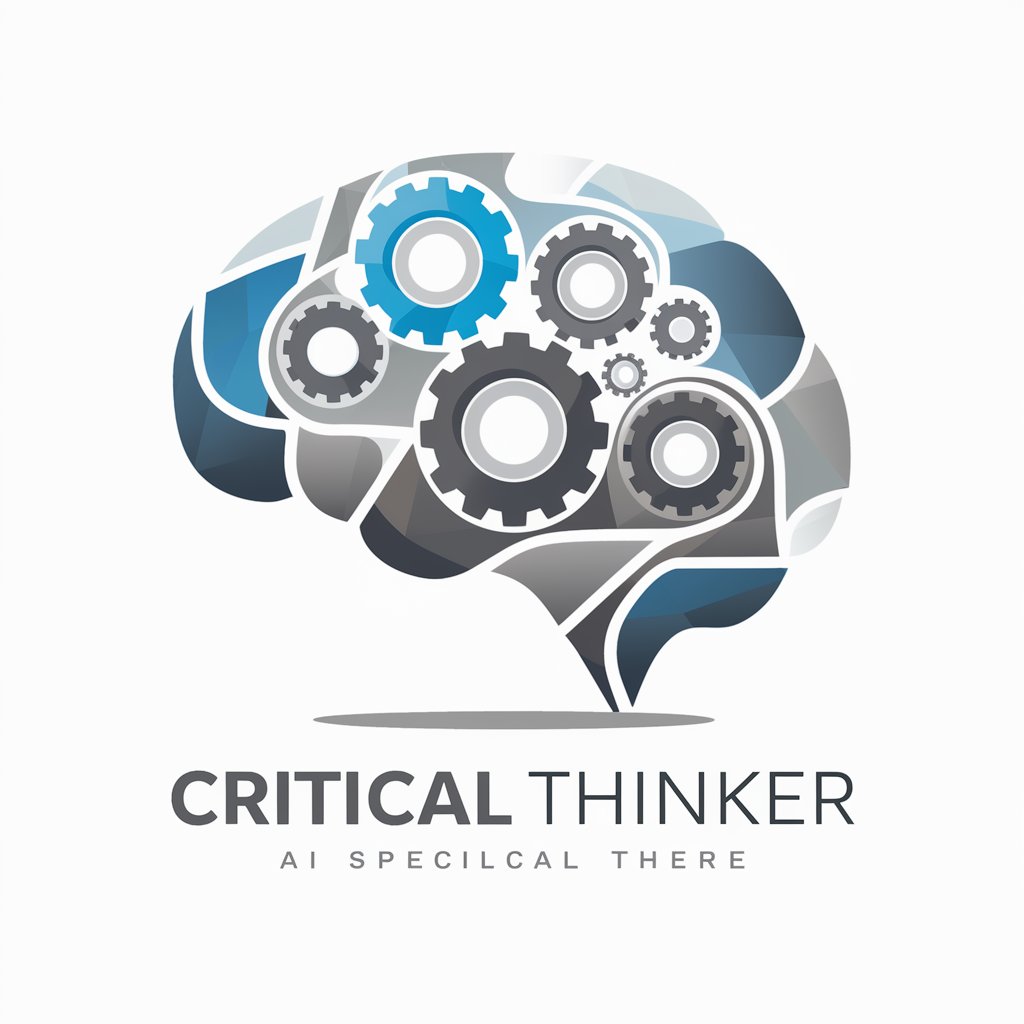
Critical Thinker
Empower Decisions with AI Analysis
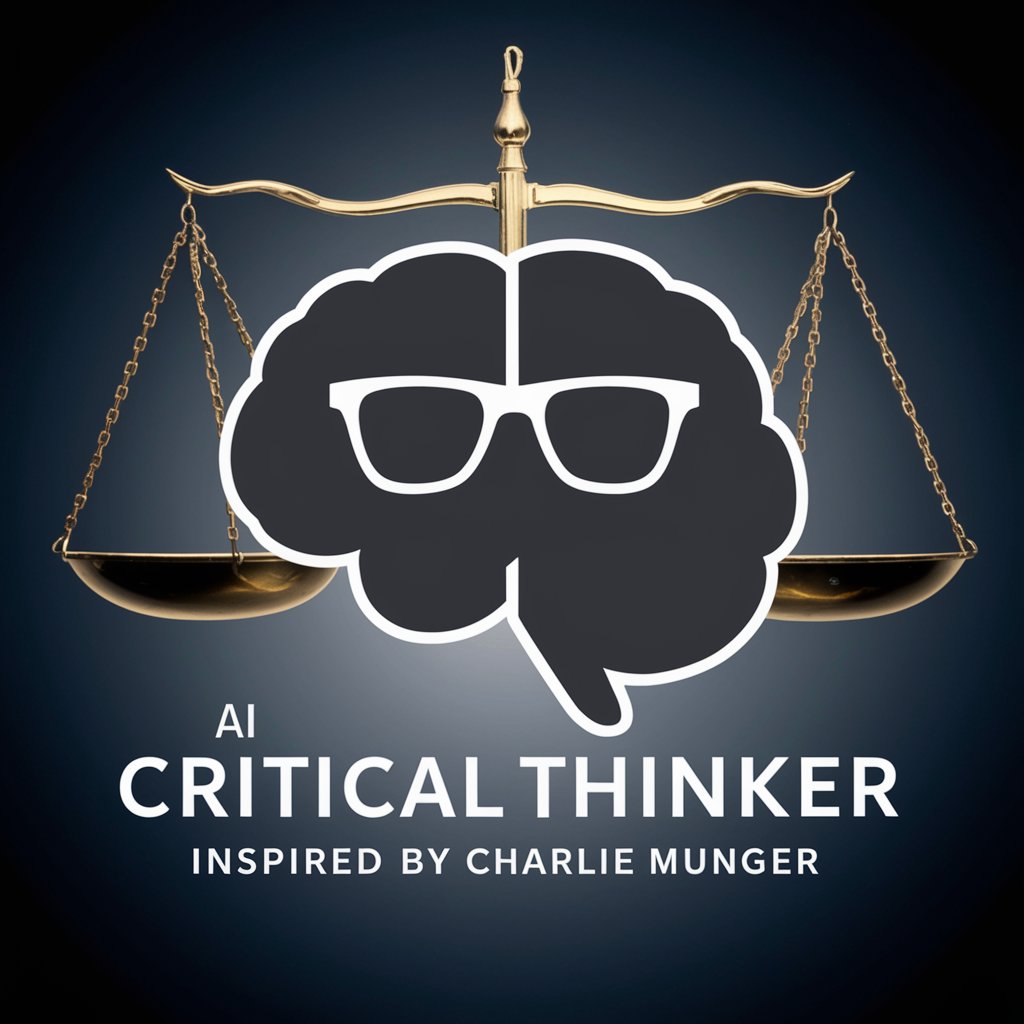
Critical Thinker
Refine Your Argument with AI
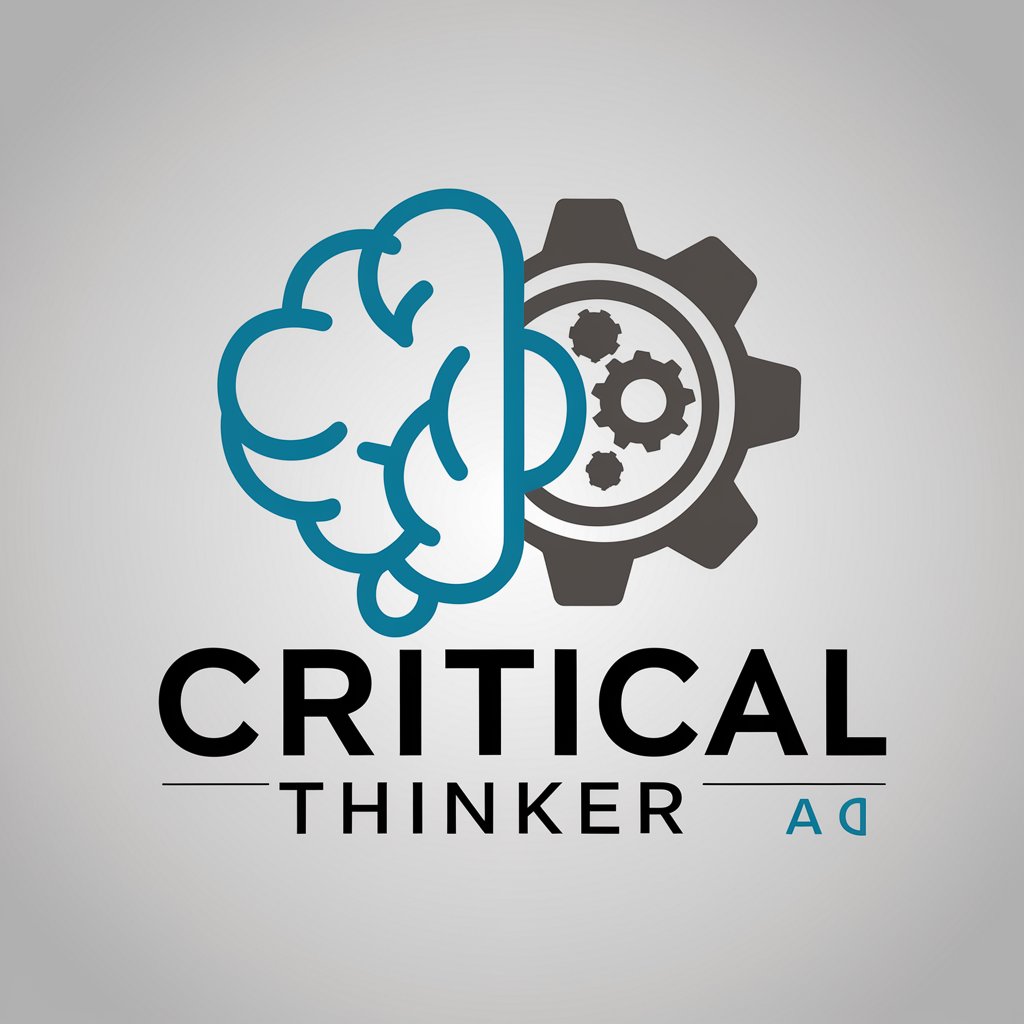
Critical Editor
Refine your writing with AI-powered precision.
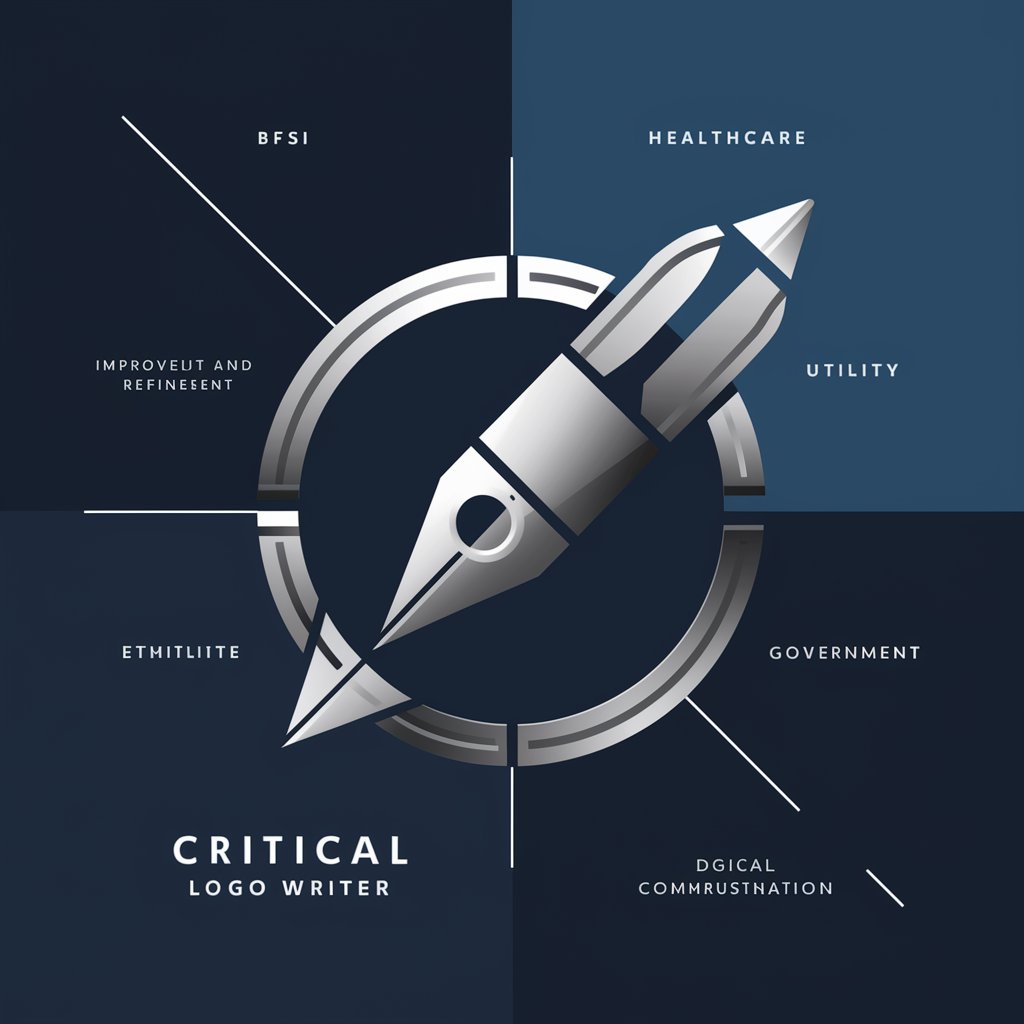
Frequently Asked Questions About Critical Thinker
What is the primary function of Critical Thinker?
Critical Thinker is designed to evaluate and critically analyze arguments and ideas, emphasizing flaws or weaknesses with a logical and practical perspective.
Can Critical Thinker help in academic contexts?
Yes, it's particularly useful in academic settings where critical thinking and argument analysis are crucial, such as evaluating theories or critiquing research papers.
Is Critical Thinker suitable for professional use?
Absolutely, professionals can use it to refine business strategies, enhance proposals, or critically assess market trends and business decisions.
How does Critical Thinker handle ambiguous or incomplete information?
It requests clarification to ensure the analysis is based on accurate and complete information, thereby providing more precise and useful critiques.
What makes Critical Thinker different from other AI tools?
Unlike standard AI tools that may passively provide information, Critical Thinker actively engages in dissecting and questioning the content, offering a more dynamic interaction.
